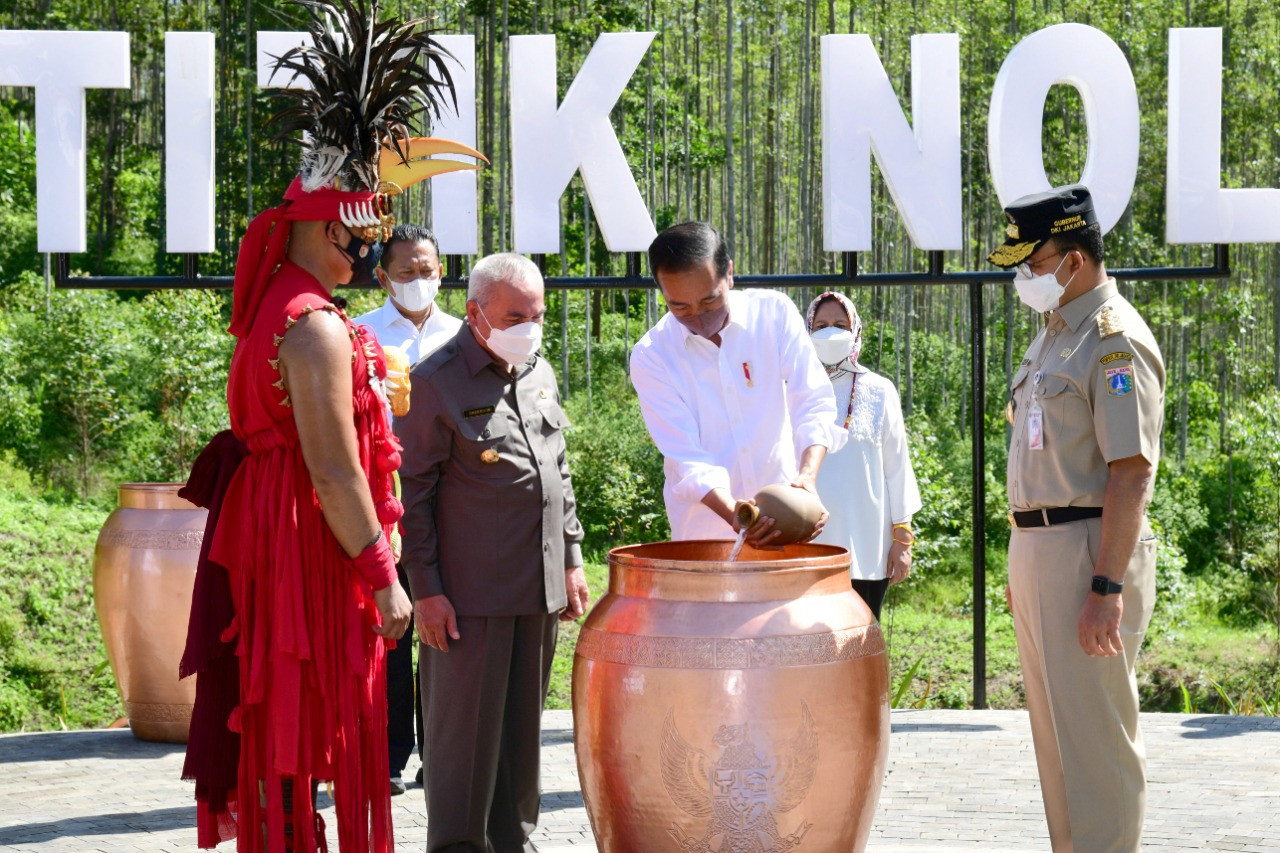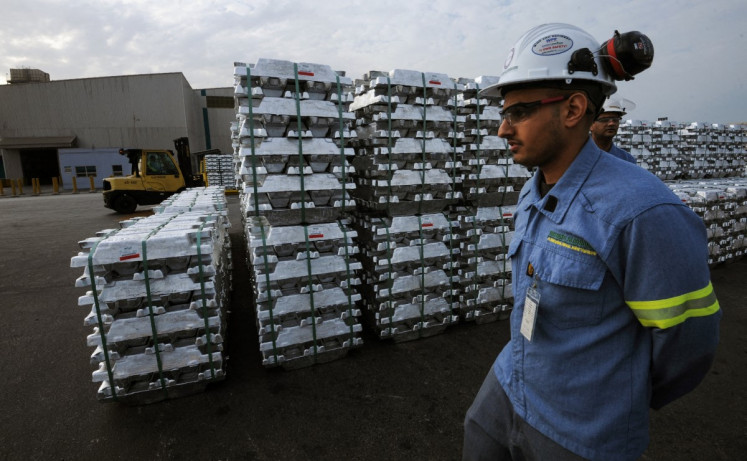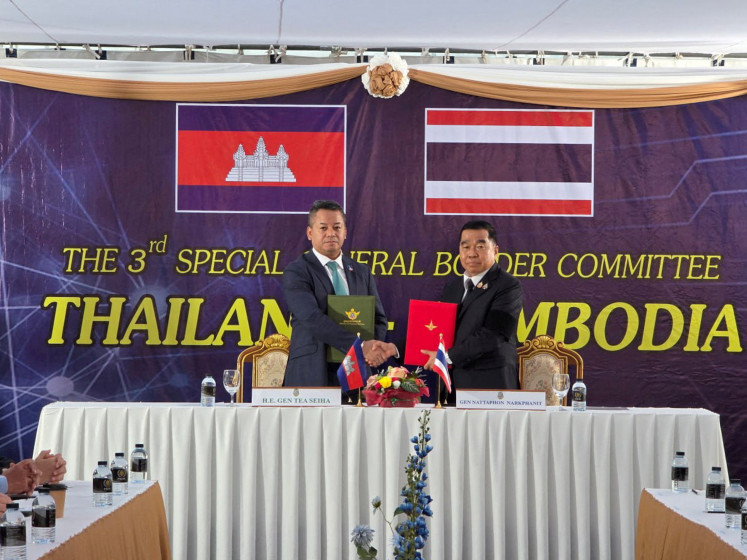Popular Reads
Top Results
Can't find what you're looking for?
View all search resultsPopular Reads
Top Results
Can't find what you're looking for?
View all search resultsTheater state
It all started with the name for the new capital, Nusantara, a moniker that — though derived from Sanskrit — is still perceived as being too “Java-centric”.
Change text size
Gift Premium Articles
to Anyone
 President Joko Jokowi” Widodo (center) pours water brought by Jakarta Governor Anies Baswedan (right), as East Kalimantan Governor Isran Noor (third left) looks on, during a Kendi Nusantara ritual at the site for Indonesia's new capital city Nusantara in Sepaku district, North Penajam Paser, East Kalimantan, on Monday. As part of the ritual, President Jokowi collected soil and water from 34 provinces, which were brought by governors attending the ceremony. (Courtesy of Presidential Secretariat Press Bureau /Muchlis Jr. )
President Joko Jokowi” Widodo (center) pours water brought by Jakarta Governor Anies Baswedan (right), as East Kalimantan Governor Isran Noor (third left) looks on, during a Kendi Nusantara ritual at the site for Indonesia's new capital city Nusantara in Sepaku district, North Penajam Paser, East Kalimantan, on Monday. As part of the ritual, President Jokowi collected soil and water from 34 provinces, which were brought by governors attending the ceremony. (Courtesy of Presidential Secretariat Press Bureau /Muchlis Jr. )
O
ne of the main drivers for the relocation of Indonesia’s new capital to East Kalimantan was to shift the country’s center of gravity from Java to someplace else in the country.
Beyond the obvious reason for distributing economic resources to regions outside of Java, the primary consideration has also been the desire to move away from Java-centric politics that have been dominating the country since independence in 1945.
And even in Indonesia's Java-centric politics, Javanese culture has loomed large, with its own traditions and habitus dictating the behaviors of politicians, government officials and key decisionmakers, directing policies and agendas for millions of non-Javanese living in far-flung places like Papua and Aceh.
Other than transitional president Burhanuddin Jusuf Habibie, who served briefly in 1998-1999, all Indonesian presidents have been Javanese for the simple reason that the Javanese make up the largest voting bloc in the country.
For decades, Java-centric politics has generated resentment if not outright opposition from ethnic groups in the country’s periphery, like the “rebellious” provinces of Papua, Maluku and Aceh.
When making the decision to move Indonesia’s capital to a forested part of Kalimantan, President Joko “Jokowi” Widodo himself promoted the plan as an initiative to move from a “Java-centric” paradigm to an “Indonesia-centric” one.
“We need to have an even distribution of resources; 58 percent of the country's gross domestic product comes from Java. The reality is we have more than 17,000 islands,” the President said after the House of Representatives passed the law on the new capital in early March.
We have reasons to believe that President Jokowi is sincere with his plan of spreading the wealth around, but in recent days, his actions have not followed his early rhetoric.
It all started with the name for the new capital, Nusantara, a moniker that — though derived from Sanskrit — is still perceived as being too “Java-centric”. The term “Nusantara” was first introduced by the Majapahit kingdom, a Java-based empire from the 13th to 15th centuries, whose famous military commander Gajah Mada was responsible for conquering areas that now make up modern-day Indonesia, if not larger.
And then there’s the theater production that President Jokowi staged on Monday, when he gathered all 34 governors to bring in soil and water from their respective provinces and mixed them in a gold-plated container, symbolizing the archipelago of Indonesia.
This ritual has deep Javanese roots and the fact that President Jokowi also decided to camp out and stay the night until Kliwon Tuesday, believed to be one of the most sacred days in the Javanese calendar, could be seen as an indication that Java-centric view remains hard to shake off.
Anthropologist Clifford Geertz used the term theater state to refer to Southeast Asian society during pre-colonial times, when the elites preferred to flaunt their power through spectacle and political superiority was exercised through public rituals and ceremonies.
It has been a while since we last saw such an overt display of such a theater state, and with all the talk of a presidential term extension, this could be the harbinger of things to come.










